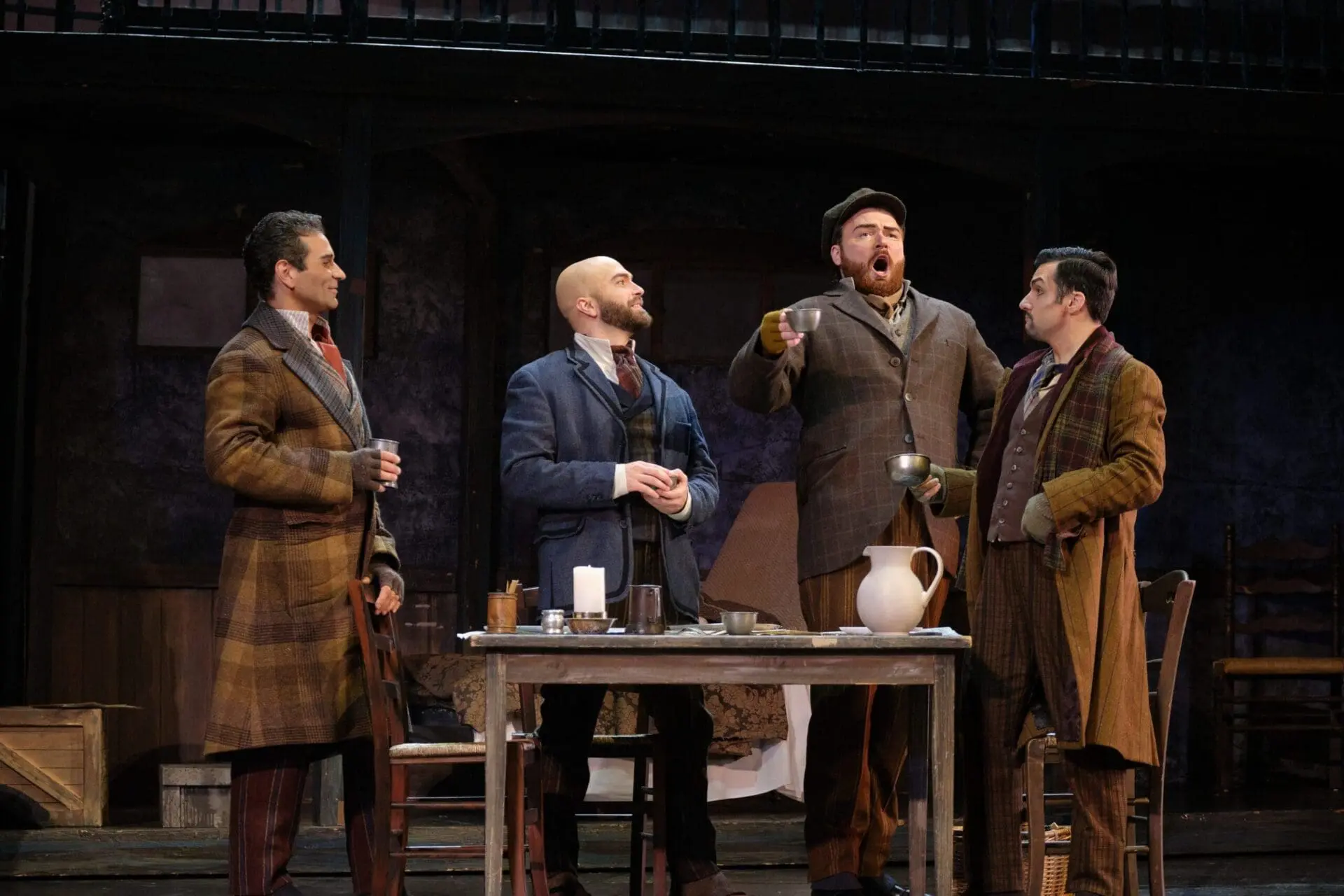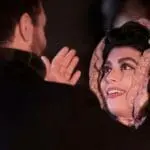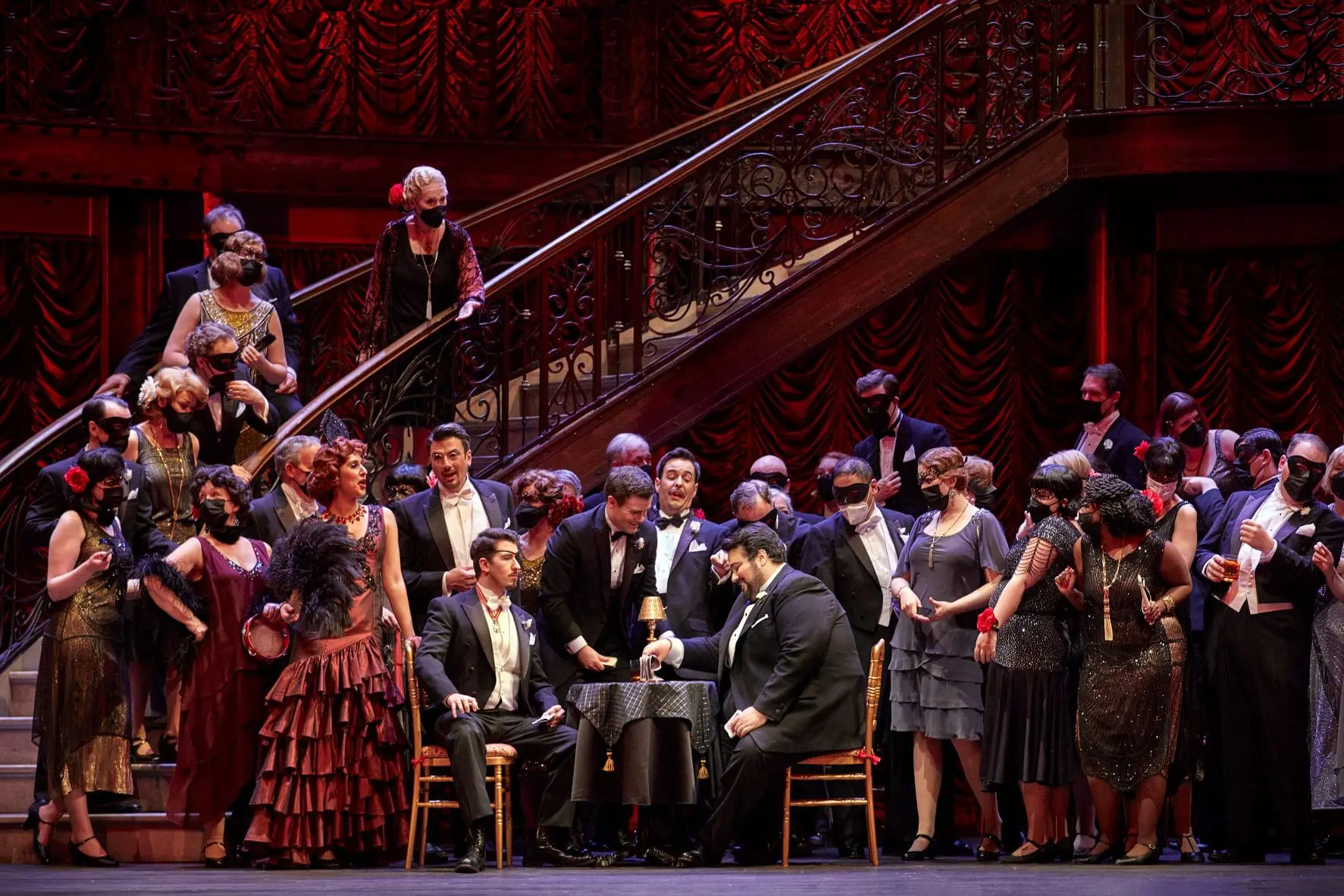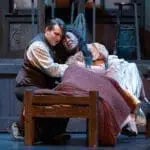Opéra de Montréal’s last opera of the season was Puccini’s La bohème in a classic period production directed by François Racine. Compelling voices, cast camaraderie and an impeccable orchestral performance made the show fly by.
Lauren Margison sounded consistently gorgeous as Mimì. The sparkle in her voice never disappeared – from highest notes to lowest, from passionate forte to mesmerizing pianissimo. Her dramatic performance was straightforward, charming and sincere: it’s easy to see why Rodolfo was charmed.
Meanwhile, Frédéric Antoun inhabited Rodolfo’s character with commitment and ease. Although he sang well, his voice was sometimes covered by the orchestra’s climactic swells. His best dramatic tenor moments were his duets with Mimì: the first joint entrance in “O soave fanciulla” (“Fremon già nell’anima” / “Ah! tu sol comandi”) was electrifying.
These duets – moments when the lovers could simply hold each other and sing – were also the high points of their onstage chemistry. When the two first met, and when they found each other outside the tavern in Act Three, I sometimes felt that the actors were following their blocking cues rather than truly responding to each other. Presumably, their brief moments of unnatural timing will fade over the run of the show.
Rodolfo and Mimì will never be my favourite La bohème couple, though – that honour goes to Marcello and Musetta. I especially love Musetta, of course. Who can resist a self-possessed, spitfire temptress in an opera? Not Marcello, and not me.
Andrea Núñez lived up to the hype, giving an irresistible performance as Musetta. Dressed in well-chosen shades of red and orange, Núñez was fiery to hear and see – she gave the audience delectable high notes, compelling drama, hotheaded bickering and, of course, bittersweet courage and kindness during the final act. Musetta found the perfect complement in John Brancy’s Marcello. Brancy’s voice projected effortlessly, and his acting, though restrained, clearly conveyed Marcello’s various states of mind from joyful to seething to serious.
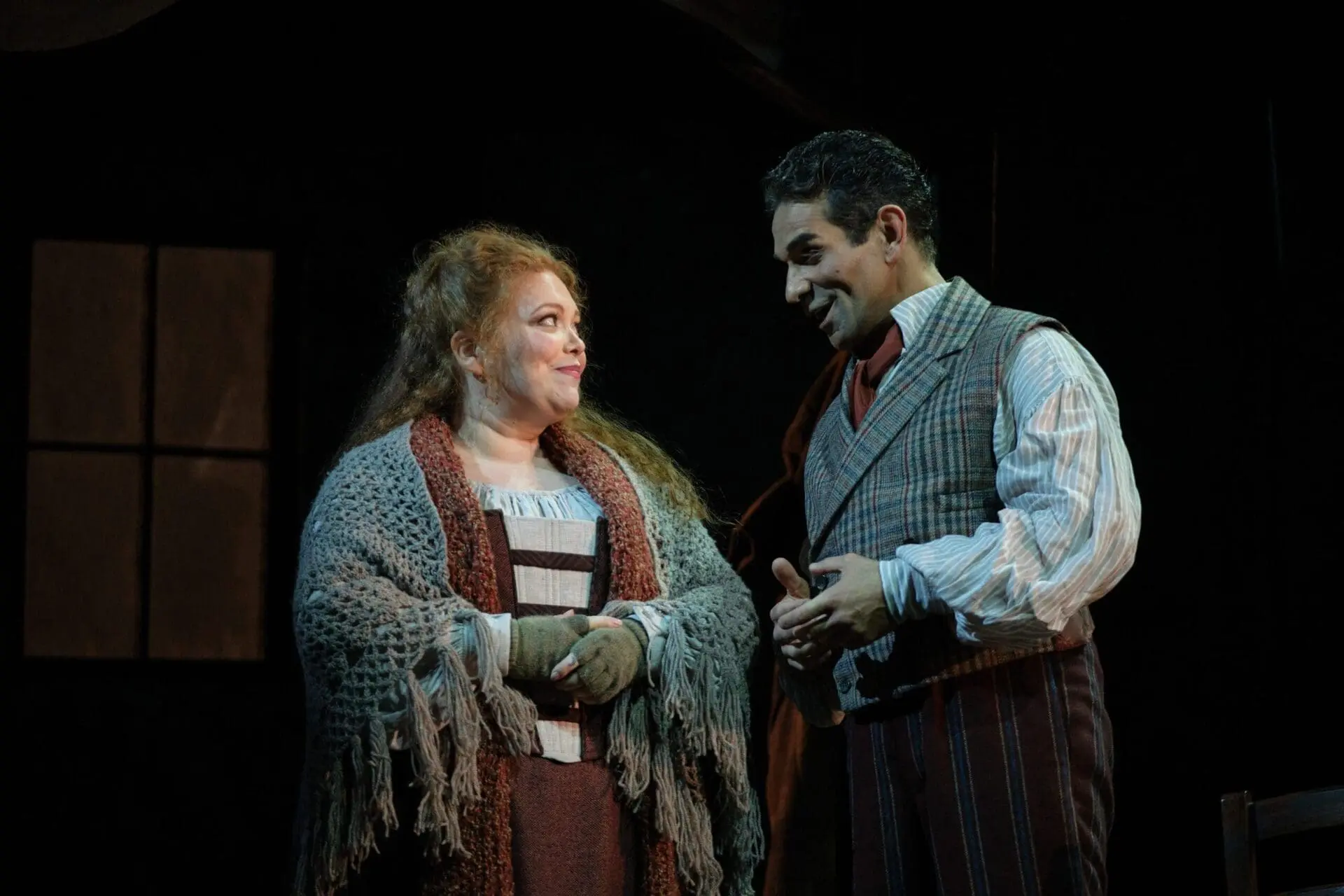
Photo Credit: Vivien Gaumand
Lauren Margison as Mimì and Frédéric Antoun as Rodolfo in Opéra de Montréal’s La bohème
The rest of the cast was also excellent: good, solid singing with lots of room for humour and theatrics. Atelier Lyrique member Mikelis Rogers made an excellent Schaunard, with his clear, focused baritone and tongue-in-cheek stage presence. Bass Jean-Philippe Mc Clish was an endearing Colline with spot-on line delivery, although his intonation sometimes wavered during the coat aria. The seasoned Valerian Ruminski used his full-bodied bass and well-honed comic instincts to make the most of his roles as Benoît, the adulterous landlord, and Musetta’s aging admirer Alcindoro.
The Orchestre Métropolitain played brilliantly under Simon Rivard. I would have listened to them play Puccini’s score all by themselves, from the boisterous ensemble scenes to the no-holds-barred emotion of the love duets. Rivard’s pacing was excellent – I enjoyed the deep breath of anticipation before “Quando m’en vo’” – and I was particularly charmed by the crisp, colourful percussion and brass as well as the harp playing of Robin Best.
Finally, the Opéra de Montréal chorus gave a solid performance, making Café Momus feel truly jam-packed and rowdy. The adults, the children’s choir and toy merchant Parpignol (tenor Angelo Moretti) were given a bow after the second act, a nice nod to the cast’s camaraderie.
This camaraderie was key, because at least to me, friendships are the heart of La bohème. I left the hall humming the love duets, but I was thinking about the finale. The way Marcello and Rodolfo know each other better than they know themselves. The way the four roommates laugh together in the face of poverty and heartbreak. The way Musetta cares for Mimi in her dying moments. The way Colline slips out quietly to sell his coat.
I salute director François Racine and the entire team for bringing these many relationships to life. There were so many moments when the cast genuinely seemed to be having fun onstage, and because their joy felt real, so did their grief. That’s La bohème.
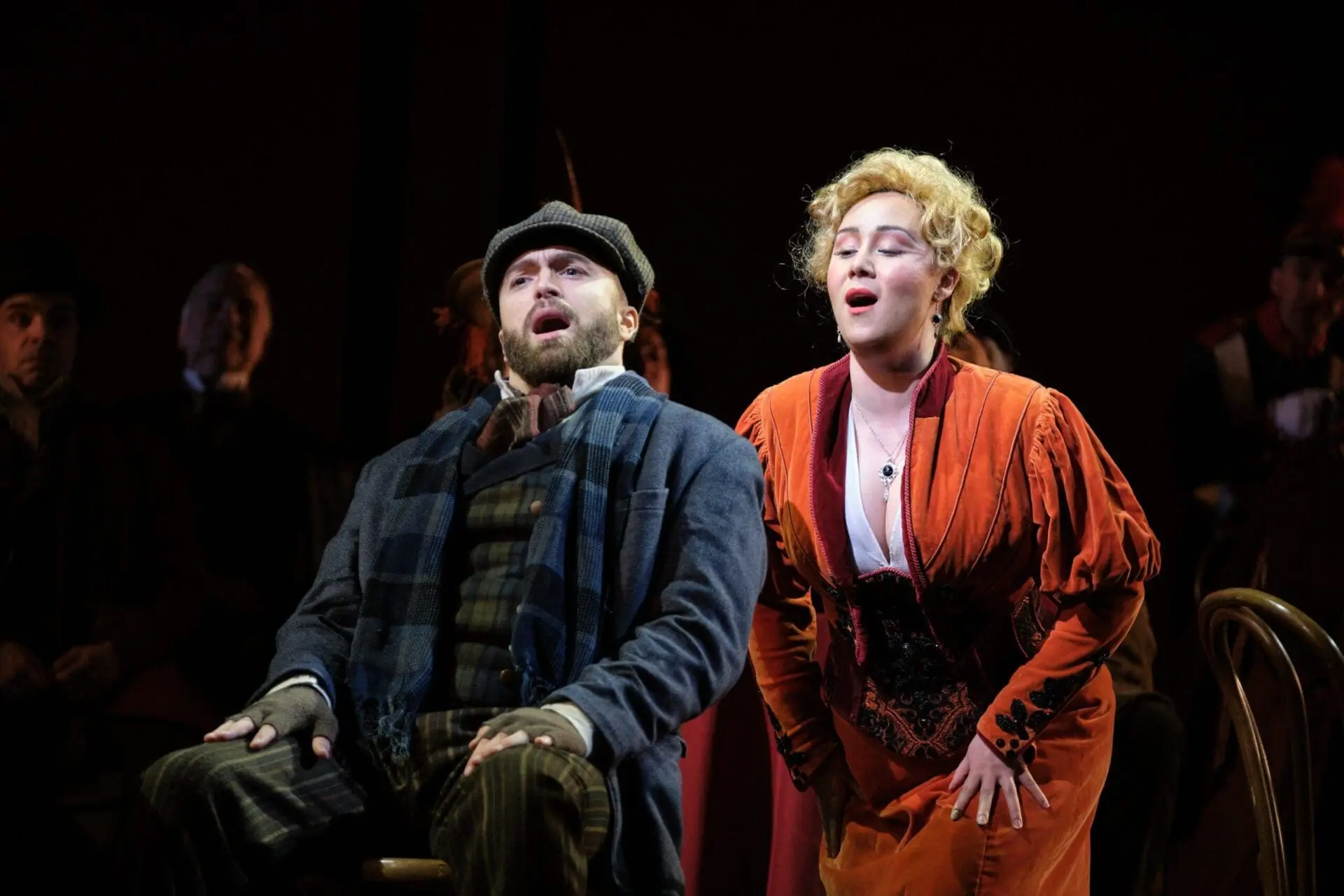
Photo Credit: Vivien Gaumand
Musetta (Andrea Núñez) teases Marcello (John Brancy) at Opéra de Montréal
Opera Canada depends on the generous contributions of its supporters to bring readers outstanding, in-depth coverage of opera in Canada and beyond. Please consider subscribing or donating today.


